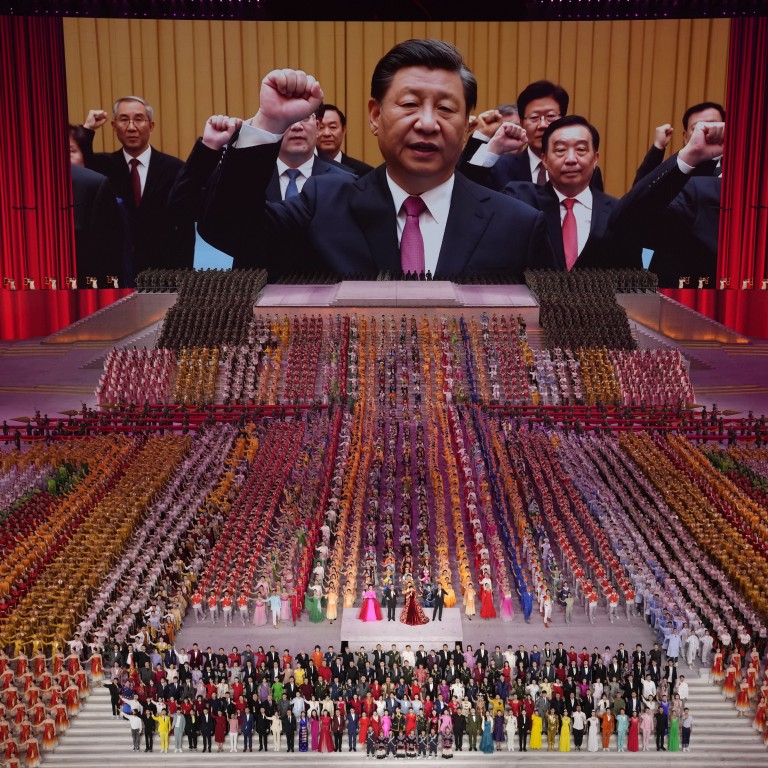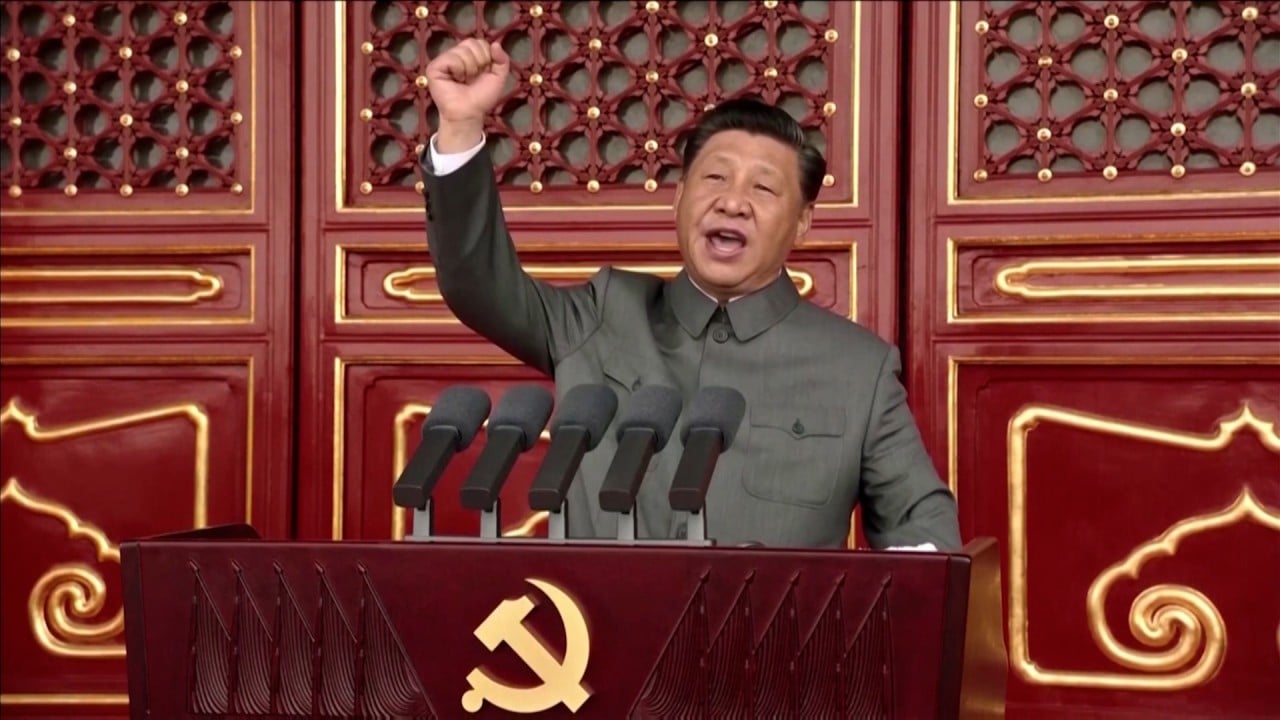
Xi Jinping asks: why do Chinese officials lack initiative and wait for orders from the top?
- The country’s most powerful leader in decades told an internal party meeting that too many cadres only act on written orders, according to a new book
- Xi has moved to consolidate his control over the party – a process some believe has made his underlings risk-averse
In January, Xi expressed frustration at a lack of initiative among officials at an internal meeting and complained that too many waited for instructions from the top before acting, according to a book published by Central Party Literature Press last month.
“My written instructions are the last line of defence,” Xi said. “If I didn’t hand out instructions, would these officials do any work?”
But some analysts noted that written orders had become an increasingly important part of the leadership’s top-down monitoring in recent years and suggested this had made officials more risk-averse.

04:14
Xi Jinping leads celebrations marking centenary of China’s ruling Communist Party
Ling Li, a professor specialising in Chinese politics and law at the University of Vienna, said: “Instructions from individual party leaders are more compelling than party policies or rules because they address specific problems to designated offices or the people in charge.”
The practice was strengthened by a party directive passed in 2019, which specified under what circumstances cadres should seek instructions from their seniors when making decisions, she added.
“It also stipulates that those who have received personal instructions from Xi Jinping are required to report on the progress of their work in implementing these instructions,” she said.
Xi’s reliance on written instructions to govern and his tight grip on the bureaucracy had led Chinese officials to become less inclined to take risks, said Dali Yang, a political scientist with the University of Chicago.
“Xi and his colleagues give lots of written instructions and it’s natural for people to wait for them,” Yang said. “With the anti-corruption fight and political indoctrination, Xi has successfully placed the entire party under [his] control but that has also made everyone very cautious, too.”
China opens more centres dedicated to Xi Jinping Thought
But Xi complained in the January meeting that some officials were good at paying lip service but “don’t walk the talk”.
The centralisation of power under Xi has led local officials to go through the motions without doing anything risky, said Kyle Jaros, an expert on China’s subnational development at the University of Notre Dame in the United States
“For local officials, the best way to remain politically in bounds … [is] to gain express higher-level approval – and hence political cover – for major new policy programmes or decisions,” he said.

05:27
‘Socialism with Chinese characteristics’ explained
Jaros said things may change if Xi felt more comfortable allowing greater policymaking discretion and tolerance of occasional missteps among lower-level officials.
“The activism or ‘innovativeness’ of local officials in previous decades was inseparable from the high degree of local discretion and imperfect oversight they enjoyed,” he said.
The new book, titled Xi Jinping’s Selected Remarks On Comprehensively Governing The Party Strictly (2021 version), also showed that Xi has pushed back against criticism of his tight grip over the party.
It revealed that three years ago he had told another CCDI meeting: “Some have said that the centralisation [of power] by the party in the past five years has gone very well, and the next focus should be about promoting democracy within the party.
“These weird comments are made by people who are either confused, have ill intentions or are dirty themselves.”
China shows world an alternative path to modern future, Xi Jinping says

